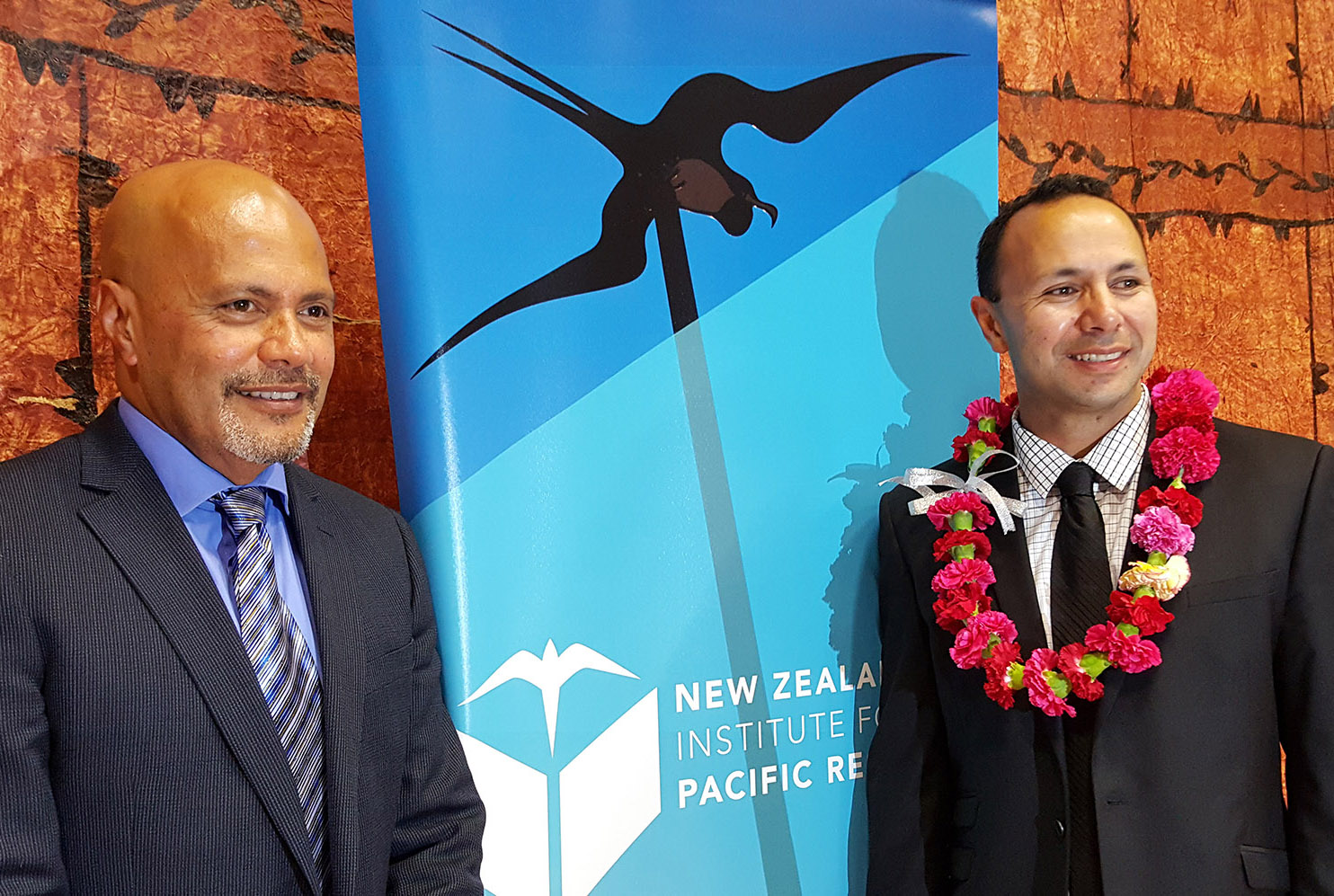
TJ Aumua
AUCKLAND (Pacific Media Watch): The launch of the New Zealand Institute of Pacific Research (NZIPR) at the University of Auckland last night has been hailed as a milestone for advancing student learning on Pacific issues.
The new institute has been established by the Ministry of Foreign Affairs in partnership with the University of Auckland, Auckland University of Technology and Otago University as a consortium for Pacific research and engagement.
Newly appointed director of the NZIPR, Associate Professor Damon Salesa, said it was the first time the NZ government had funded a national centre of excellence in Pacific research.
“It is a remarkable opportunity not only to research but to deliver opportunities to learn and to grow our students and research, especially our Pacific students, which our consortium has counted are in the thousands.”
Salesa said the institute also created opportunities for solo researchers to engage in conversations for purposeful and transformative Pacific relationships and resolutions.
Foreign Minister Murray McCully launched the institute, saying the think-tank's objective was to support sustainable development in the Pacific region.
A pro vice-chancellor of Otago University, Tony Ballantyne, said the intellectual programme of the NZIPR would connect students with “cutting edge” research on the Pacific region.
The NZIPR will also offer students supervision in specific Pacific postgraduate research, postgraduate scholarships and student internships and placements.
The Head of Pacific Advancement at AUT, Walter Fraser, said the move for a nationally recognised Pacific institute had been desired for a long time.
Informed position
He said the NZIPR was a result of two years of discussions but its launch finally gave an opportunity for universities to be able to advise government from a research informed position on Pacific issues.
Professor Jenny Dixon, deputy vice-chancellor of strategic engagement at the University of Auckland and chair of the new institute, said the challenges of the consortium had concerned how the three institutions would achieve a strategy and operations consensus for the new institute.
“I think we have to remember the institute will be present at a number of places, events are going to take pace at the other universities and also overseas, so it is very much a collective effort.”
“AUT, like Otago, has a large representation of Pacific students, Pacific staff. AUT has the Pacific Media Centre -- these were assets the collective bid offered.”
A launch statement noted:
• The three universities in collaboration educate 75 percent of all Pacific Island university students in New Zealand, and produce 60 percent of Pacific PhDs. They also employ 90 percent of the 175 Pacific academics working in universities across New Zealand.
• The ministry is contributing $7.5 million over five-years to the NZIPR.
• Research of the NZIPR is agenda-driven by the ministry. The first five research cases of interest for the institute are: Mapping donor contributions in the Pacific, labour markets for sustainable and economic development in the Pacific, commercial potential of land in the Pacific, private-sector investment in the Pacific and the role of sovereign trust funds.
This work is licensed under a Creative Commons Attribution-NonCommercial 3




